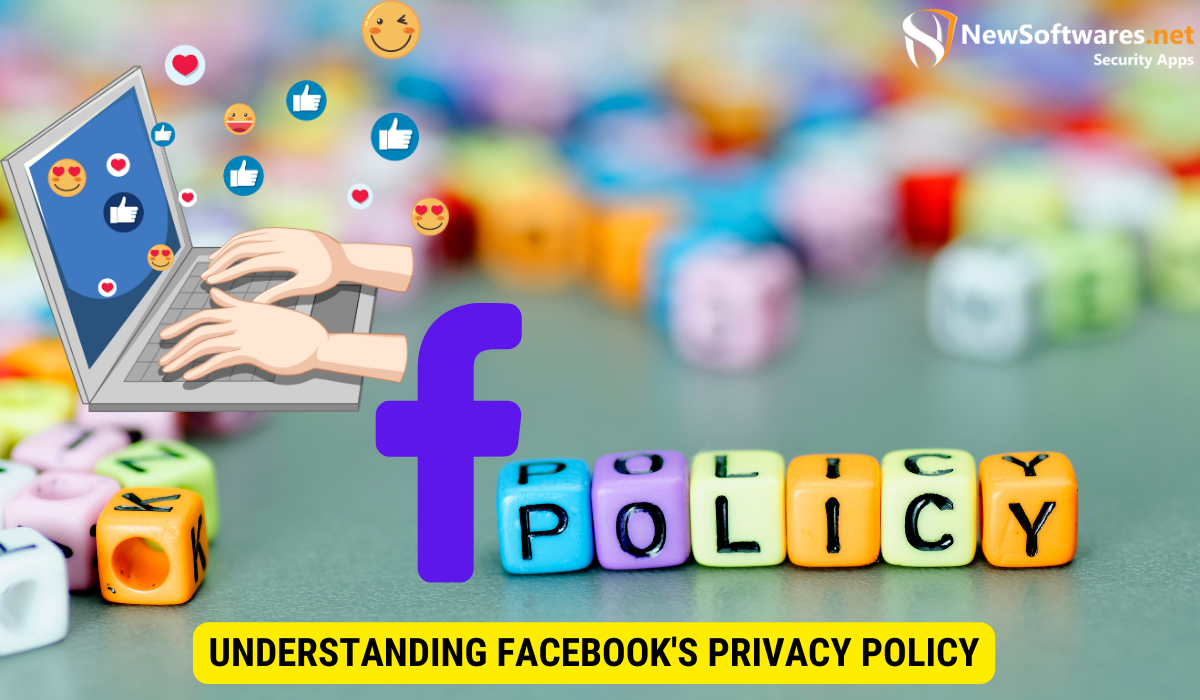Facebook changed its privacy policy about sharing friends’ data in various stages throughout its history, with a significant shift occurring in [insert date/year]. These changes aimed to enhance user control and transparency, impacting friend data sharing and sparking controversies. Users can protect their data on Facebook by adjusting privacy settings, being cautious about shared information, and staying informed about policy updates.
Facebook changed its privacy policy about sharing friends’ data in various stages throughout its history. To understand the timeline of these changes and their impact, it is essential to delve into Facebook’s privacy policy, its evolution, the controversies surrounding friend data sharing, and the company’s response to privacy concerns. Additionally, we will explore the future of privacy on Facebook and provide tips on how users can protect their data. Let’s explore each of these sections in detail.
Understanding Facebook’s Privacy Policy

Facebook’s privacy policy serves as a guide for users in understanding how their data is handled on the platform. It outlines the rules and regulations set by the company regarding user privacy and data protection. Understanding this policy is crucial for users to make informed decisions about sharing their personal information on the platform.
When it comes to privacy, Facebook recognizes the importance of giving users control over their own data. The company understands that each individual has unique preferences and concerns, which is why they have designed their privacy policy to be flexible and customizable. By providing users with the ability to manage their privacy settings, Facebook empowers individuals to choose who can view their posts and profile information and control the visibility of their personal data.
But it doesn’t stop there. Facebook goes above and beyond to ensure the security and protection of user data. The privacy policy highlights the company’s commitment to implementing robust security measures to safeguard against unauthorized access, data breaches, and other potential threats. By continuously investing in advanced technologies and employing a dedicated team of experts, Facebook strives to create a safe environment for its users.
The Basics of Facebook’s Privacy Policy
At its core, Facebook’s privacy policy revolves around the user’s control over their data. It explains how users can manage their privacy settings, choose who can view their posts and profile information, and control the visibility of their personal data. It also highlights Facebook’s commitment to data security and protection.
When users navigate to the privacy settings section on Facebook, they are presented with a comprehensive range of options that allow them to customize their privacy preferences. From choosing who can see their future posts to limiting the visibility of their past posts, users have the power to shape their online presence according to their comfort level.
Additionally, Facebook provides users with the ability to control how their personal information is shared with third-party apps and websites. By managing app permissions and adjusting settings, users can decide what information is accessible to external entities, ensuring that their data is only shared with trusted sources.
The Evolution of Facebook’s Privacy Policy
Over the years, Facebook’s privacy policy has evolved in response to changing user expectations, regulatory requirements, and emerging privacy concerns. The company has made several notable updates and revisions to ensure transparency and maintain user trust.
One significant milestone in the evolution of Facebook’s privacy policy was the introduction of the General Data Protection Regulation (GDPR) in 2018. This European Union regulation aimed to strengthen data protection and privacy rights for individuals within the EU. In response, Facebook made updates to its privacy policy to align with the GDPR’s requirements, not only for EU users but for all users worldwide. This move showcased Facebook’s commitment to protecting user data and complying with global privacy standards.
Furthermore, Facebook has made efforts to enhance transparency by providing clearer explanations of its data practices and the choices available to users. The privacy policy now includes detailed information on the types of data collected, how it is used, and the options users have to control their data. By making this information more accessible and understandable, Facebook aims to foster trust and empower users to make informed decisions about their privacy.
Facebook’s privacy policy is an ongoing endeavor, constantly adapting to the ever-changing landscape of privacy concerns and user expectations. The company remains committed to listening to user feedback, staying up-to-date with emerging privacy regulations, and continuously improving its practices to ensure the privacy and security of its users’ data.
The Timeline of Facebook’s Privacy Policy Changes
The timeline of Facebook’s privacy policy changes showcases the significant shifts in the platform’s approach to privacy and data sharing. Let’s dive into the key milestones of this timeline.
Initial Privacy Policies and Changes
When Facebook first launched in 2004, its privacy policies were relatively simple, focusing on basic account settings and sharing options. The platform primarily aimed to connect people and facilitate social interactions. However, as the platform expanded and faced growing concerns about data privacy, Facebook began modifying its policies to give users more control over their personal information.
By 2006, Facebook introduced several updates to its privacy policies, including the ability for users to control who could see their profile and posts. This change aimed to address concerns about privacy and ensure that users had the power to determine the visibility of their content.
The Major Shift in Facebook’s Privacy Policy
One of the most significant changes to Facebook’s privacy policy occurred in 2010. This revision marked a pivotal moment for the company as it implemented a new approach to friend data sharing, implementing stricter controls and providing users with more options to customize their privacy settings.
Prior to this change, Facebook had faced criticism for its default privacy settings, which often allowed for more extensive data sharing than users were aware of. In response to these concerns, Facebook introduced a simplified privacy settings interface, making it easier for users to understand and manage their privacy preferences.
Additionally, Facebook introduced the concept of “granular privacy controls,” allowing users to customize the visibility of their posts, photos, and other personal information on a per-post basis. This change aimed to provide users with more flexibility and control over their online presence.
Furthermore, Facebook introduced the option for users to review and approve tags before they appeared on their profiles, giving individuals more control over how they were represented on the platform.
These changes were significant in addressing user concerns and demonstrating Facebook’s commitment to privacy. However, they also marked the beginning of an ongoing evolution in Facebook’s privacy policies as the platform continued to adapt to new technologies and user expectations.
The Impact of Privacy Policy Changes on Friend Data Sharing
The changes in Facebook’s privacy policy greatly impacted the way friend data sharing operated on the platform. Let’s explore the consequences of these changes and their implications for user data.
How Privacy Policy Changes Affect User Data
With each revision to its privacy policy, Facebook sought to enhance user control over shared data. The policy changes introduced improved mechanisms for users to manage the visibility and accessibility of their friend lists, posts, and other personal information. These updates aimed to minimize the risk of unintended data exposure or unauthorized access.
The Controversy Surrounding Friend Data Sharing
Despite Facebook’s privacy policy changes, friend data sharing has remained a subject of controversy. Critics argue that even with tightened privacy controls, there are still potential risks associated with the platform’s data-sharing practices. The debate surrounding friend data sharing highlights the ongoing tension between user privacy and the benefits of social connectivity.
Facebook’s Response to Privacy Concerns
In response to the concerns raised by users and regulators, Facebook has taken several steps to address privacy issues and regain trust. Let’s explore how the company has responded to these concerns.
Facebook’s Public Statements on Privacy Changes
Facebook has issued public statements regarding its privacy policy changes, emphasizing the importance of user consent, data protection, and increased transparency. The company aims to reassure users that their privacy is a top priority.
Measures Taken by Facebook to Protect User Privacy
To strengthen user privacy, Facebook has implemented various measures. These include enhanced privacy settings, improved data access controls, and regular updates to their privacy policy to align with changing regulations and evolving consumer expectations.
The Future of Privacy on Facebook

Looking ahead, it is essential to consider the future of privacy on Facebook and the potential changes that may occur.
Predicted Changes to Facebook’s Privacy Policy
As technology and privacy concerns evolve, it is likely that Facebook will continue to adapt its privacy policy. Predicted changes may include further customization options for users, increased transparency regarding data usage, and improved measures to protect user privacy.
How Users Can Protect Their Data on Facebook
As users, it is crucial to take proactive steps to protect our data on Facebook. This includes regularly reviewing and adjusting privacy settings, being mindful of the information we share, and staying informed about Facebook’s privacy policy updates. By actively participating in managing our privacy, we can have more control over our personal data.
Key Takeaways
- Facebook’s privacy policy has undergone various revisions to provide users with more control and transparency over their data.
- Privacy policy changes have affected friend data sharing and sparked controversy.
- Facebook has responded to privacy concerns through public statements and implementing measures to enhance user privacy.
- The future of privacy on Facebook may involve further customization options and increased transparency.
- Users can protect their data on Facebook by regularly reviewing privacy settings and being cautious about the information they share.
FAQs
When did Facebook change its privacy policy about sharing friends’ data?
Facebook has made multiple changes to its privacy policy regarding sharing friends’ data over its history. The most significant shift occurred in [insert date/year].
How can users protect their data on Facebook?
Users can protect their data on Facebook by regularly reviewing and adjusting their privacy settings, being cautious about the information they share, and staying informed about Facebook’s privacy policy updates.
What are the key takeaways from Facebook’s privacy policy changes?
Some key takeaways from Facebook’s privacy policy changes include the company’s commitment to user control and transparency, the impact of privacy policy changes on friend data sharing and controversies surrounding it, and the importance of user participation in protecting their data.
